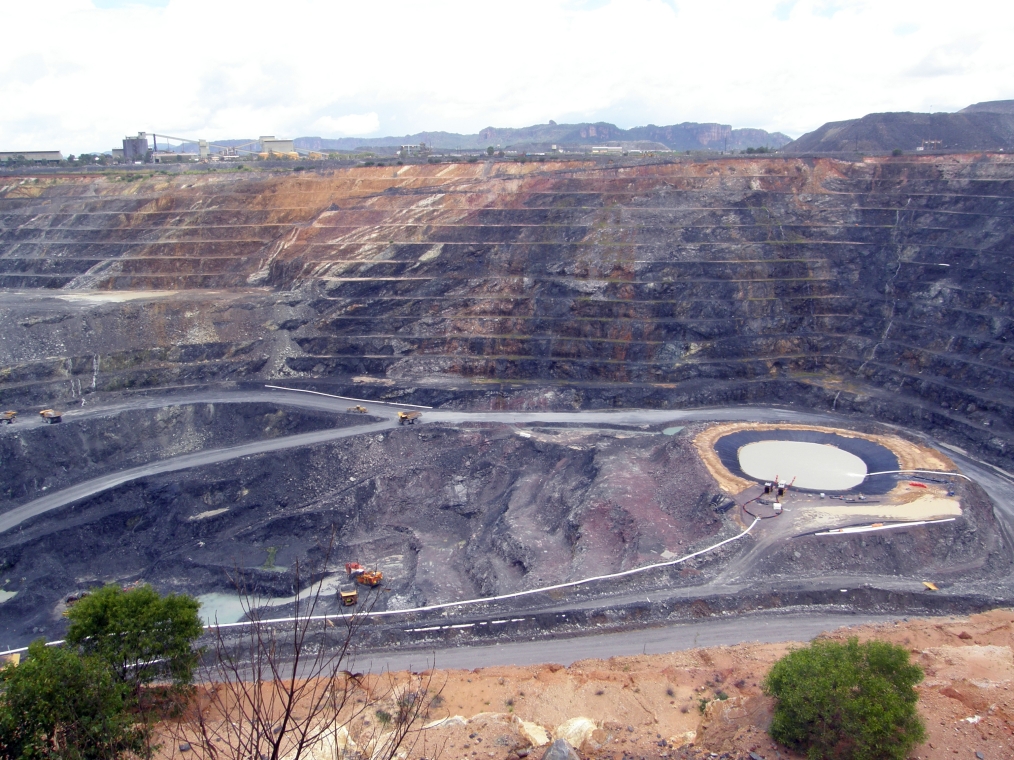The Economy
Darwin is the only substantial city in the Territory. It is the capital city; centre of government and focus for Australia's northern defence. Government encompassing administration; defence forces; education; health services; and law and order; as well as utilities and public transport; is therefore by far the largest employer; followed by retail trade; accommodation and food services.
Mining; related manufacturing; construction and services are the Territory's major industry contributing around a third of Gross State Product (GSP). For example the LNG terminal mentioned above encompasses resource extraction; manufacturing; and transport; as it receives, compresses and ships gas from the nearby Timor Sea oil and gas fields.
The Ranger Uranium Mine just 230 km east of Darwin is also a significant mining resource. The present open-cut mine is surrounded by, but separate from the Kakadu National Park. There are believed to be massive uranium reserves in the Territory.

Ranger 3
Source: Wikimedia Commons - not my photo
Uranium is widely distributed in small concentrations but it is highly soluble. It can be dissolved and transported in ground waters to be precipitated, and thus concentrated, by subtle changes in oxidation conditions. Among the features that create suitable conditions for its deposition are geological unconformities, the interface between two strata of differing type and age, that acts as a barrier or filter to the dissolved metal salts. In the above photo the unconformity is clearly seen against the slanting sandstone in the top left-hand corner. Very large additional reserves are available to underground mining and it is possible that additional very high grade deposits occur in the sandstones above the unconformity.
It is estimated that energy resources presently 'locked up' within the park are greater than the oil reserves of Saudi Arabia. The park is managed by the Gundjeihmi Aboriginal Corporation on behalf of the traditional owners.
More distant mining operations include bauxite at Gove Peninsula and Manganese at Groote Eylandt and the McArthur River silver lead and zinc mine, further south near the Gulf of Carpentaria.
Soils are poor and heavily leached by water and age - difficult for Agriculture
Despite various attempts to promote rice and cotton in Northern Australia, including construction of a dam on the Ord River in Western Australia, these have been problematic. Rice is a very dense (heavy) but relatively low value crop and its viability is very sensitive to transport costs. Although Darwin is close to Asian markets, distance and the high cost of transport, means that domestic markets are more economically serviced by farms elsewhere. Shipping to Asia requires port infrastructure on a sufficient scale to keep costs competitive. This in turn requires that a large area be successfully cultivated. But to date every attempt has been thwarted by a range of factors from inadequate capital investment to the wildlife eating the crop.
But mangoes have provided a crop of sufficiently high value to be economically flown out and, serendipitously, one that is ready for market before fruit from elsewhere in Australia; or the world. Mango orchards have become the main agricultural pursuit around Darwin area; with thousands of acres under trees. They too are attacked by the wildlife, in this case fruit bats, but orchardists have evolved a squat flat top, dense tree shape that minimises this loss.
The northern Cattle industry predominantly supplies the live trade to SE Asia and the middle east. It is still recovering from recent problems that the locals blame on the Commonwealth Government for perceived mishandling of cruelty revelations in overseas abattoirs - not too many votes won in the Gulf Country.
Tourism is obviously an important local industry; contributing around 5% of GSP. The Territory is said to receive well over a million visitors a year; mainly from elsewhere in Australia; with a strong contingent of 'Grey Nomads', retirees travelling around the country by caravan or campervan; and others, like us, seeing Australia by air and using local accommodation.
Touring Darwin by amphibious 'Duck'
Apart from Darwin itself, the principle attractions are Kakadu and Uluru (Ayers Rock). Less popular destinations include Katherine; Tennant Creek; and Alice Springs.
NOTE
When I originally published this article it included my attempt to resolve the glaring contradictions in current anthropology and archaeology about the age of Aboriginal culture and when the first Australians arrived. I felt that it was misplaced in what is essentially a holiday story. This now has its own separate article - follow this link
